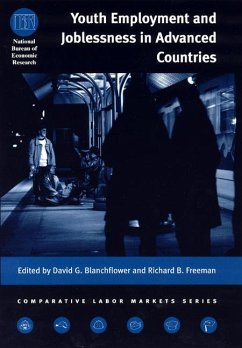The economic status of young people has declined significantly over the past two decades, despite a variety of programs designed to aid new workers in the transition from the classroom to the job market. This ongoing problem has proved difficult to explain. Drawing on comparative data from Canada, Germany, France, Sweden, and the United Kingdom, these papers go beyond examining only employment and wages and explore the effects of family background, education and training, social expectations, and crime on youth employment. This volume brings together key studies, providing detailed analyses of the difficult economic situation plaguing young workers. Why have demographic changes and additional schooling failed to resolve youth unemployment? How effective have those economic policies been which aimed to improve the labor skills and marketability of young people? And how have youths themselves responded to the deteriorating job market confronting them? These questions form the empirical and organizational bases upon which these studies are founded.








